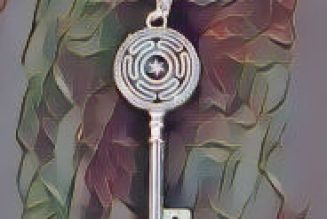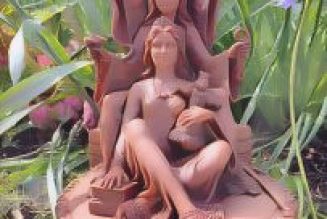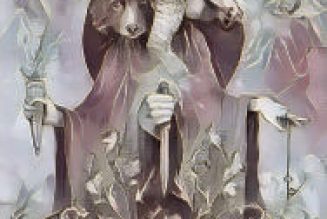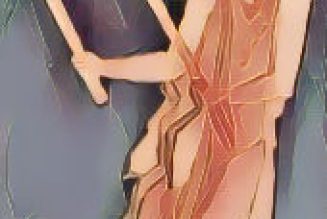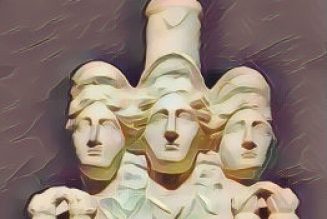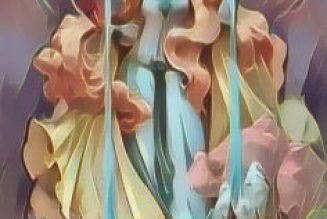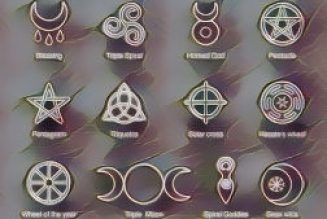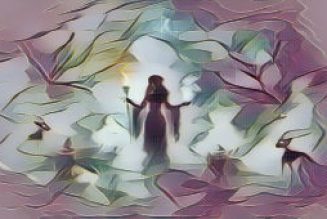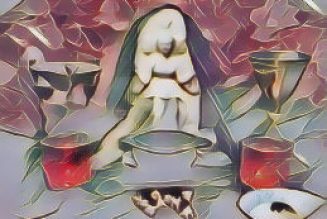Frigg, also spelled Frigga, is a prominent figure in Norse mythology. She is identified as the wife of Odin, who is considered the chief of the Aesir gods. Frigg is associated with marriage, motherhood, the hearth, and the home. Additionally, sources link her to prophecy, wisdom, and the concept of fate.
In Norse myths, Frigg is described as a dignified and compassionate figure, often embodying ideals related to family, loyalty, and protection. Various accounts attribute to her a reputation for wisdom and knowledge of the future, though she is depicted as rarely sharing these insights.
As the queen of Ásgard, Frigg is referenced as a protector of families, women, and children. She is invoked in contexts involving marriage, childbirth, and domestic harmony. Some traditions describe her as overseeing daily life, relationships, and fertility, and as having a mystical role in weaving the destinies of gods and mortals.
Frigg’s association with foresight appears in several Norse stories. She is one of the deities described as knowing the future, but she is also characterized by her discretion in keeping this knowledge private. In the story of her son Baldr, Frigg is said to foresee his death in a dream and takes steps to protect him, which is presented as an example of her prophetic abilities and maternal concern.
Frigg is described as the mother of Baldr, a god noted for his radiance and popularity. According to myth, after dreaming of Baldr’s death, Frigg seeks oaths from all things in the world not to harm him, but omits the mistletoe, which is later used in his death. This narrative is often cited to illustrate Frigg’s devotion, the limitations of her power, and the theme of sorrow associated with foreknowledge.
Symbols commonly linked to Frigg include the spinning wheel and the loom, which are interpreted as representing her connection to fate and the weaving of destinies. Some myths describe her as weaving clouds, drawing a parallel between her role in shaping the sky and influencing the future. The act of spinning is used as a metaphor for her place in the cosmic order, and she is sometimes compared to the Nornir, the three fates in Norse legend.
Frigg and the goddess Freyja share several attributes, including associations with love, fertility, and magic, and both are regarded as important deities. Some scholars have proposed that Frigg and Freyja may have originated as aspects of a single goddess, later becoming distinct figures as Norse mythology developed. Frigg is more closely linked to marriage and prophecy, while Freyja is associated with passion, war, and the afterlife.
The name for Friday in modern English is derived from Frigg, known as “Frigg’s day.” In Old Norse, the day was called Frjádagr, and in Germanic traditions, it was later blended with the Roman goddess Venus, connecting Friday to themes of love and beauty. This etymology is cited as evidence of Frigg’s influence on language and culture.
Historical records indicate that Frigg was widely venerated among Norse and Germanic peoples. Rituals in her honor were performed to seek protection for the home, safe childbirth, and harmonious relationships. In some regions, women are reported to have invoked Frigg’s blessing before significant family events or when seeking guidance in personal matters.
In artistic and literary depictions, Frigg is often shown as a regal woman, sometimes engaged in spinning or surrounded by symbols of domestic life. She is also described as being accompanied by attendants known as the “handmaidens of Frigg,” each associated with a different aspect of daily life, such as healing, household management, or love.
Frigg’s legacy is referenced in both Norse mythology and modern pagan practices. Her stories are used to illustrate values such as family, wisdom, and acceptance of fate. Frigg is regarded as a symbol of maternal care, a weaver of destinies, and a figure associated with prophecy in the context of Norse legend.














